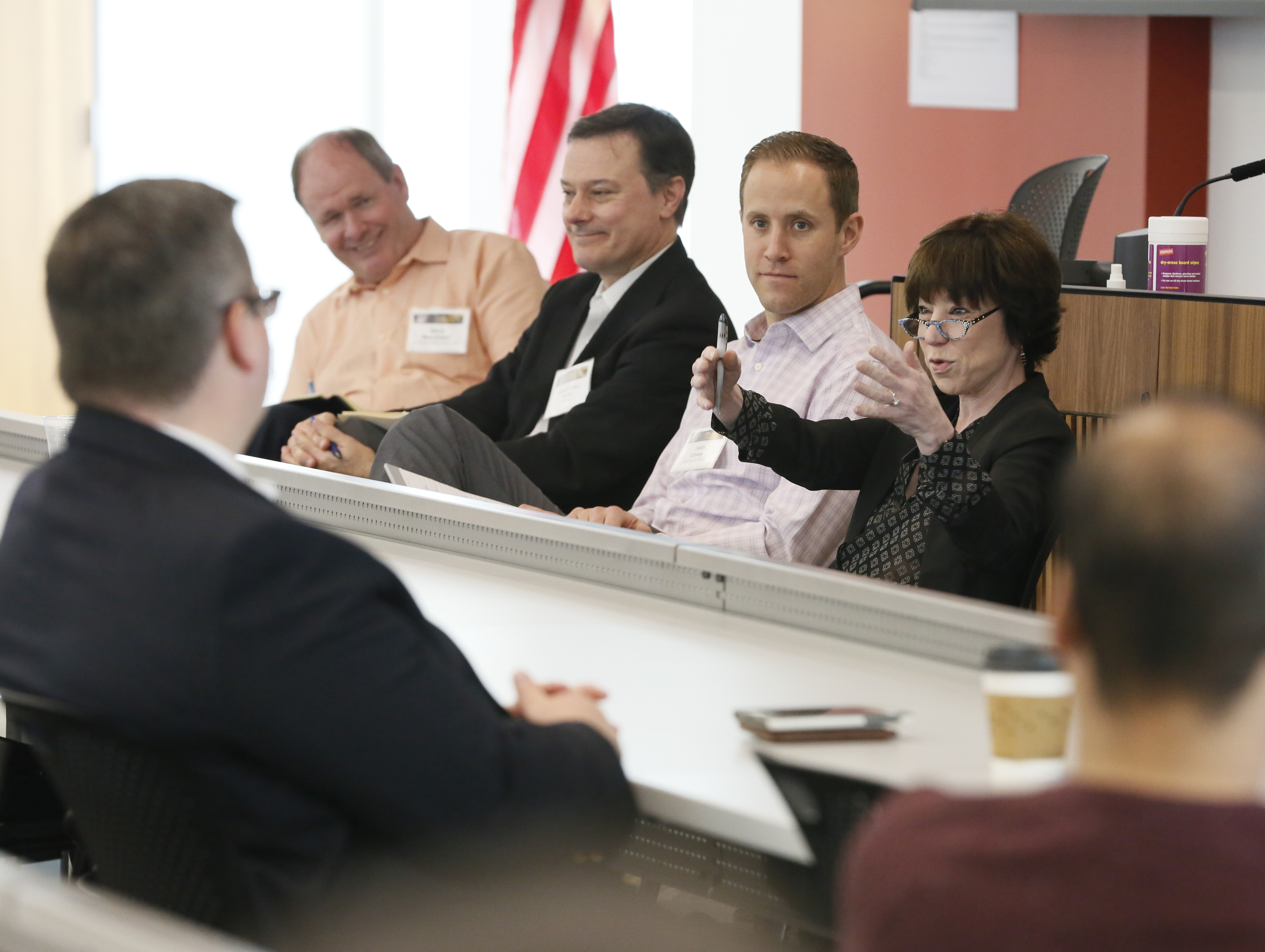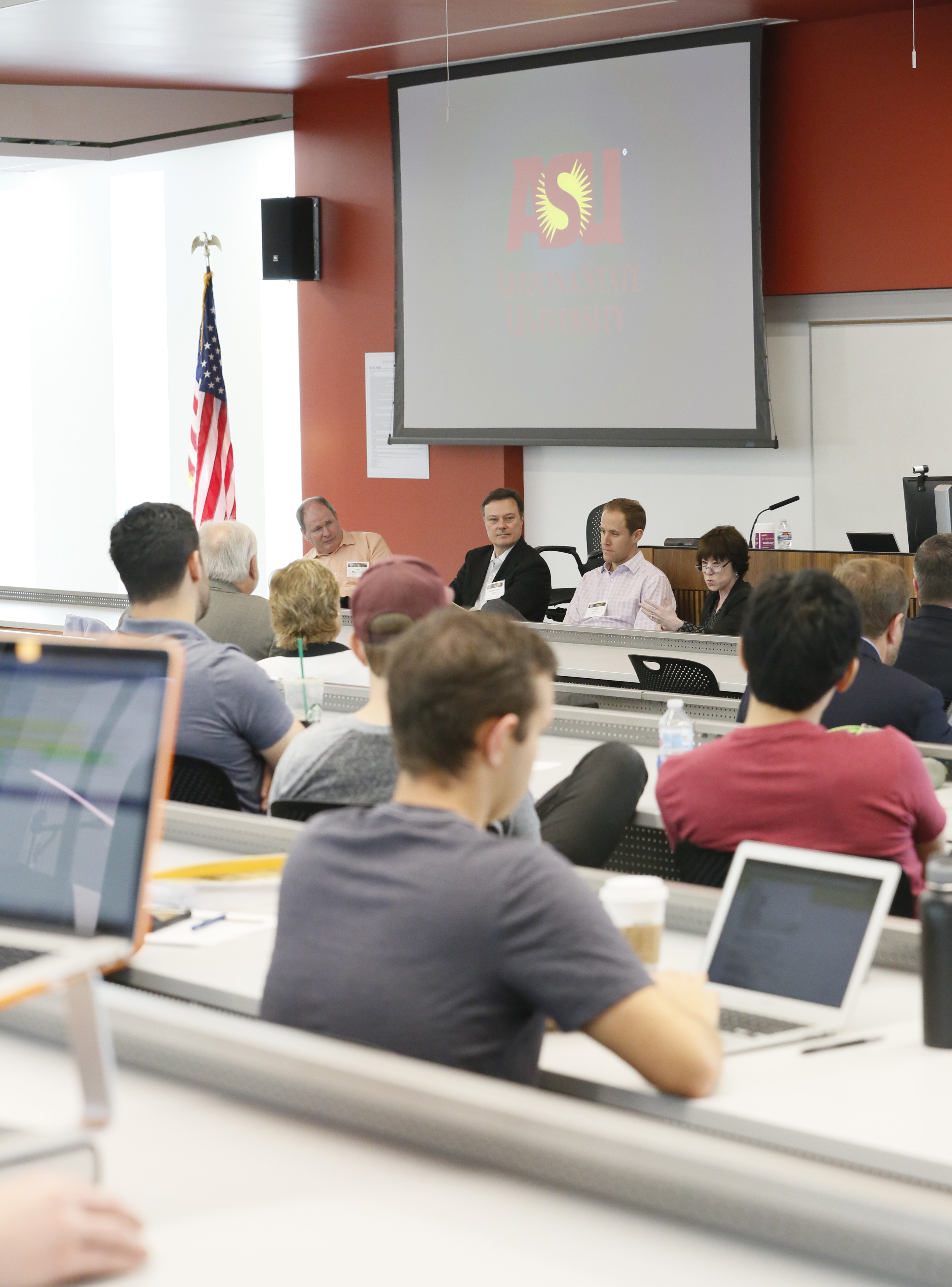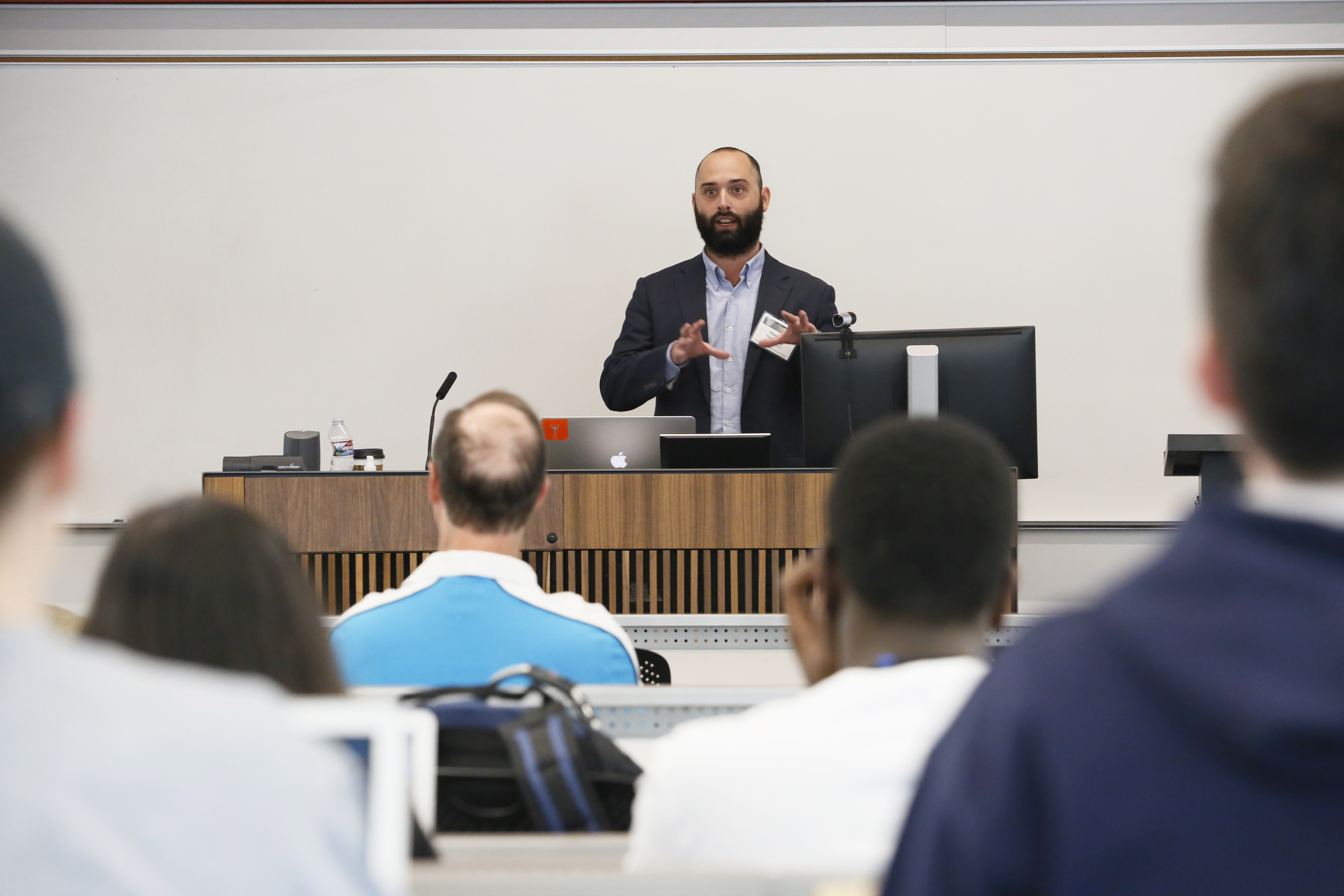
The Center for Law, Science & Innovation, in collaboration with e-discovery expert Michael Arkfeld, held its second annual Legal Analytics and Big Data Workshop on October 27, 2017. The Workshop, attended by industry-wide experts and stakeholders in the field of legal analytics from across the country, is a forum for provocative discussion of the use of data, software, and artificial intelligence (AI) in the practice of law.
Workshop participants had far-ranging conversations and presentations on the use of legal analytics and emerging technology. This included discussions on AI in e-discovery, contracting for data creation and ownership, AI-assisted legal research, blockchain law, and protecting identity in the age of large-scale data breaches.
AI may have the potential to revolutionize the practice of law in the future, but it is also being used on the ground today. Workshop participants separated the hope from the hype while discussing tools and techniques, like topic modeling and sentiment analysis used to turn large troves of data into actionable information.
Analytics can also be use to improve every attorney’s favorite activity – billing. Participants at the Workshop discussed legal invoicing from both the in-house and law firm perspective. Better tools used to capture more data about attorneys’ work can give a window into law firm operations, help properly encode billing entries for more efficient returns, and contain inefficient and wasted effort.
Increasingly, a primary source of big data is the wide world of the Internet of Things (IoT). Connected devices in public and private spaces are producing and analyzing large amounts of data all the time. Workshop participants discussed how that data is collected, analyzed, and used, as well as how to create and protect ownership interest in such analytical data.
Such accumulated data has become a target for hacking and theft wherever it is stored. With contribution from ASU’s Global Security Initiative, the Workshop participants discussed the challenge of protecting data and identity in the age of Equifax and other high-profile data breaches.
Blockchain was also a topic of discussion at the Workshop, particularly as it stands to affect the practice of law. Regulators are wading into these new, and sometimes murky, waters, and as governments and clients adopt this emerging technology, attorneys of all stripes need to pay attention. (Stay tuned for more from LSI’s Blockchain Law and Policy interest group soon.)
Lastly, the Workshop also took the opportunity to visit Faculty Director Gary Marchant‘s Artificial Intelligence: Law, Ethics & Policy course for a panel discussion on Technology and Legal Education, as well as a presentation by ROSS Intelligence‘s Thomas Hamilton on the frontiers of AI and legal research.
For more on the latest in Law, Technology, and Analytics, be sure to check out the ASU-Arkfeld 7th Annual eDiscovery and Digital Evidence Conference, and stay tuned for additional information and links from the Legal Analytics Workshop.





















